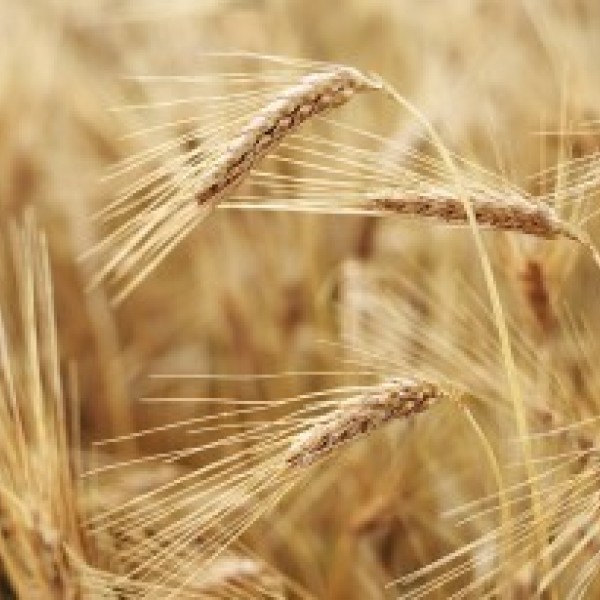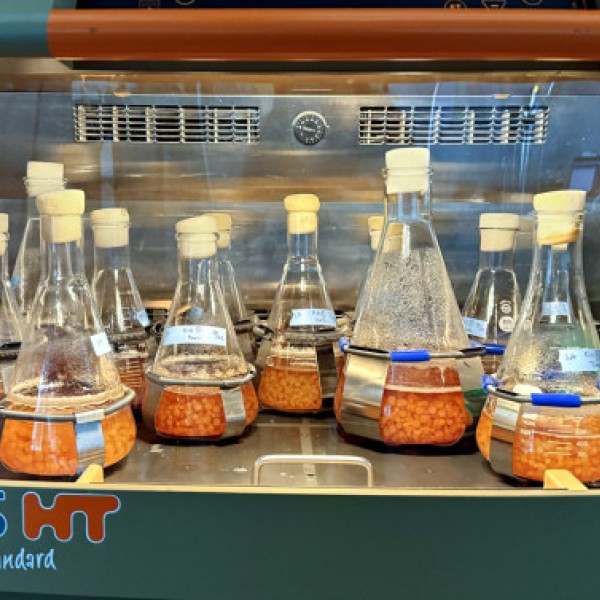Gurpreet Kaur discovered a passion for soil microbiology while studying at Punjab Agricultural University in India. She followed that passion to Cornell CALS’ Nutrient Management Spear Program (NMSP) where her Ph.D. focuses on the role of soil microbes in sustainable soil and crop management. Here Gurpreet shares her path to Cornell and research goals.
What did you study before coming to Cornell?
I always wanted to study something different and as an undergrad at Punjab Agricultural University in India, I explored clinical, food and soil microbiology. My father’s passion for gardening influenced me to focus on soil microbiology. I was fascinated by the ways microbes interact with soil and crops in a mutualistic dynamic. Microbes are everywhere but we often don’t recognize how important they are, especially for growing our food.
For my Masters research, I studied the effects of organic fertilizer on soil health, and the growth and yield of cowpea. The research reinforced my interest in studying soil microbiology and led me to explore a Ph.D. I’m excited to increase our understanding of the role soil microbes play in our agricultural systems.
Why did you decide to join NMSP?
From the moment I first discovered NMSP and connected with Quirine Ketterings, NMSP director and professor of nutrient management in the Cornell CALS Department of Animal Science, I knew this was where I wanted to further my research.
When we first met, Quirine and I discussed ways of integrating soil microbiology into the team’s current work. I had a good feeling about joining NMSP because the program had all the research areas I wanted to explore and I felt Quirine would be a good mentor. I was thrilled to be admitted to the Ph.D. program with a department teaching assistantship.
How was the transition from India to the US?
I was able to attend NMSP team meetings by Zoom before moving to Ithaca. I felt a sense of belonging from the first meeting I attended even though I was still in India. When I arrived in Ithaca, the entire team was very welcoming and helpful. It was like finding a second family.
When I started taking classes at Cornell, I was surprised to learn that professors and students have a more informal relationship here than I was used to in India. I also discovered that the teaching styles are quite different. But everyone at Cornell is very welcoming and helpful, which has made it easier to adjust to the new system.
What is your Ph.D. focus?
I will be applying my microbiology expertise to expand current NMSP projects. For example, the team works with farmer yield data to identify areas in fields that are higher yielding versus lower yielding and areas that are variable in yield over the years. We call these areas yield stability zones. I will specifically examine these zones to see if soil microbes drive yield differences.
In a recent analysis, NMSP found that manure can increase yield beyond what can be obtained with fertilizer alone. This growing season I will conduct field trials to determine whether soil microbes are involved in that positive impact.
I am also working on proposals to evaluate nitrogen producing microbes for climate resilient crop production. The agriculture industry is increasingly focused on sustainable alternatives to synthetic nitrogen fertilizer, which is produced in a highly energy-intensive process. Some companies have developed biologicals (engineered living organisms or products from living organisms) to provide nitrogen for crops like corn, reducing the need for fertilizer. I hope to evaluate these biologicals for potential to increase and stabilize yield across yield stability zones and reduce reliance on synthetic nitrogen.
"Throughout my Ph.D. program I hope to connect microbiology, soil science and agronomy with precision agriculture approaches. I look forward to working with farmers, farm advisors, interns, and fellow NMSP teammates on these projects in the coming years."
Megan Wittmeyer is a writer for the Cornell Nutrient Management Spear Program.





